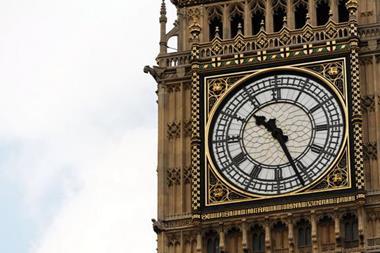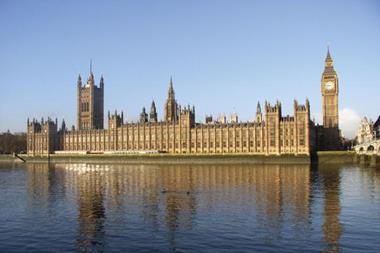The Bribery Act has far reaching implications for both UK businesses and multinationals with offices or headquarters in the UK. Rupert Nevin explains how the Act will affect corporate liability
For some time now regulatory authorities in Britain have been ramping up activity against corporate misgovernance. A trial has recently started against British Airways executives who are accused of price fixing. Directors of French transport and infrastructure group, Alstom were also recently arrested on suspicion of bribery and corruption after raids by the Serious Fraud Office (SFO).
In terms of enforcement, the SFO has said that it is moving significant skills into its specialist Anti-Corruption Domain, and is in the process of developing these skills further with an extensive training programme. Just this month the SFO announced that it had significantly increased its conviction rate in cases brought before the courts in the past year and had recruited 60 new enforcement officers.
As a consequence of this heightened activity, a series of high level risks have emerged for UK businesses and multinationals with offices or headquarters in the UK.
The new Bribery Act further raises the stakes of corporate liability, significantly extending the powers of the UK courts. UK businesses and multinationals are now more vulnerable than ever to prosecution, which can carry penalties of up to 10 years imprisonment for individuals, unlimited fines and cause irreparable damage to company and individual reputations.
The Bribery Act was passed by Parliament in early April and although a start date has not been given for it yet, businesses are already being strongly advised to get their ethics in line with legislation. The Act applies to UK companies and foreign companies doing business in the UK, as well as UK nationals and those with a connection to the UK. Multinationals operating in the US will already have some idea of what to expect as Foreign Corrupt Practices Act (FCPA) enforcement actions have significantly increased over the past few years. There is also already a bribery law amongst our European trading partners.
The old law was widely criticised for being complex and archaic. Under it, consent was needed by the Attorney General to prosecute. Now this consent is not needed. The new Act also widens the scope of activities that will become unlawful both in the UK and overseas and introduces the prospect of both personal and corporate criminal liability.
Put simply, the Act has introduced four new offences. It is now a criminal offence to offer, promise or give a bribe. It is a criminal offence to request, agree to receive or accept a bribe. The Act has introduced an entirely separate offence of bribery of foreign officials. Finally, there is an entirely new offence of failure by relevant commercial organisations to prevent bribery by persons working on behalf of the organisation.
“Businesses should begin reviewing their compliance programmes now to ensure that they are operating ethically, openly and transparently
It is this last offence that businesses really need to consider. Companies will be liable for bribes offered or made by employees unless they can show ‘adequate procedures.’ In other words, ignorance will not be a viable excuse. The Act stops short of defining what these “adequate procedures” are, however businesses should begin reviewing their compliance programmes now to ensure that they are operating ethically, openly and transparently before the changes are implemented by the Secretary of State.
Compliance programmes need to have a series of principles setting out what is and what isn’t acceptable. These principles should also make it clear that the new Act captures activities where there is an intention to ‘induce an improper performance.’ In other words, where there is an intention to cause another to do something that they would not otherwise have done. The Act goes on to say, ‘which is also in breach of irrelevant expectation.’ This introduces the idea of what an impartial observer would think. Industry custom and practice will not be something that can be taken into account – just because a company has been acting in a certain way for several years, will not make it acceptable.
Internal procedures for reporting incidents of bribery should also be put in place, as well as implementation plans outlining clear sets of responsibilities for different members of the company. If a company already has bribery policies, these need to be updated, otherwise they will not capture the wider definition of the term introduced under the new Act.
Businesses need to adopt an anti-bribery mindset and one of the most effective methods of achieving this goal is through comprehensive training. Training is often misguidedly seen as a luxury that is cut when times are tough. This is a mistake. Training and raising awareness are an effective means of helping employees gain a deep understanding of their responsibilities under a new policy and helping embed cultural change.
It is the intention that UK authorities will match the stringent approach to bribery adopted by US bodies such as the Securities and Exchange Commission and the Department of Justice. Whether this happens remains to be seen. However, if the recent criminal prosecution of BAE is the sign of things to come, enforcement officers will be going straight for the jugular.
Rupert Nevin is a partner at DWF
.




















No comments yet